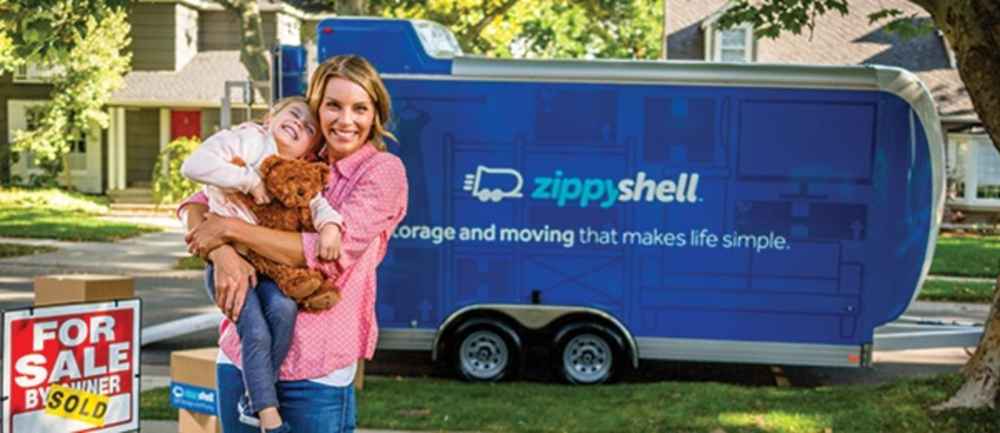A recognizable company does not automatically correlate to the success of a franchise. While the brand name may draw consumers, it is ultimately up to those in charge to entice them to return—a task that’s becoming harder and harder in a modern crowded market. This is the challenge Dave Rothman, President and CEO at Zippy Shell Greater Columbus (Zippy Shell), faced in 2016.
A stockpile of problems
Rothman, a 30-year veteran in corporate technology, decided to open a Zippy Shell franchise in 2014—a process that would require him to develop a customer base for the portable storage and moving brand in the Columbus area from scratch. He started by conducting a series of traditional marketing strategies commensurate with other Zippy Shell franchises, such as ad space on music radio, billboards, and newspapers. The attempts failed to generate substantial results. In fact, Rothman says that he would spend $60,000 to $70,000 on print advertisements and be lucky if he attracted 10 customers.
“At the end of the day, the reports were not being translated into sales,” Rothman says. “And for the first time, I had to admit that even though I had been in technology for over 30 years, I was not spending money in the right places of importance for digital marketing.”
So, Rothman reached out for help. In October 2015, he partnered with the full-service digital marketing agency RevLocal.
A new digital move
The Columbus based company’s first order of business was to designate a local strategist, whose main objective was to educate the local populace about the company.
“The name Zippy Shell does not explain to a person exactly what the company does,” says Vinny Purtle, enterprise digital marketing strategist at RevLocal. “Our company’s goal was to maximize Dave’s dollars, while also getting the message out to the public that Zippy Shell is not your average moving/storage company.”
To provide this education, RevLocal created a defined landing page for the local Zippy Shell that provided customers with easier access to the franchise’s website and information. It also incorporated a section driven by aggregated reviews from around the Web to instill trust with customers and make them feel like their voices mattered, Purtle says.
In addition, the local strategist created a blog to further explain the company’s services, objectives, and core principles.
Besides making educational updates, Zippy Shell revised its quote-request process. In months prior to the partnership with RevLocal, Zippy Shell had a quote-request button on its website that would generate an email in the local franchise’s inbox. However, due to inefficient timeliness of the response, customers would end up choosing another company. As a response, RevLocal’s strategist suggested an instant-quote button. This functionality allowed the customer to receive an immediate quote for the services they required.
“The instant quote function has produced a dramatic improvement in our ability to connect with the customer,” Rothman says. “On top of that, it really distinguishes us from all the other company’s in the area, who don’t provide that on their website.”
A new take on an old strategy
To spread word about the franchise, Rothman and Purtle decided to give radio another shot. Rothman had run advertisements in the past through print and on music radio stations, but the results were far from stellar to say the least. So, this time he opted to advertise on two talk radio stations, where the company has garnered a great deal of business from the over 50-year old demographic.
“We ran several commercials on radio, but [it was on] music radio, where the cost is far greater and results far less.”
A new stored success
Since their first meeting last October, Zippy Shell Greater Columbus has increased their storage container count from 83 to 138. The once one-man show has since grown into a larger team. Their efforts have resulted in an average 4.8 out of 5 review rating across social proof sites. And while the winter months are notoriously difficult for storage companies—any given storage/moving company can be expected to lose an average of 30% to 40% of its containers—Rothman says that Zippy Shell only lost seven containers, or 7%, during this time.
To continue their success, Rothman and Purtle meet to review the marketing dashboard reporting system each month. Doing so allows both companies to analyze Google business listings, blog activity, social media activity, Google analytics, and website traffic. From there, the two companies will devise a marketing strategy for the following month.
It looks like Zippy Shell has found its place within the Columbus area.
“Every location of a franchise is unique,” Purtle says, “and through marketed branding, we are able to show people just how unique Zippy Shell is, how it’s different than all of the rest.”








